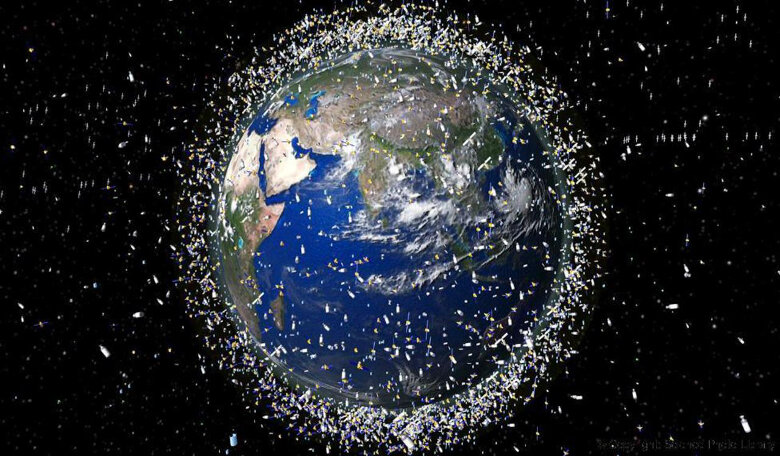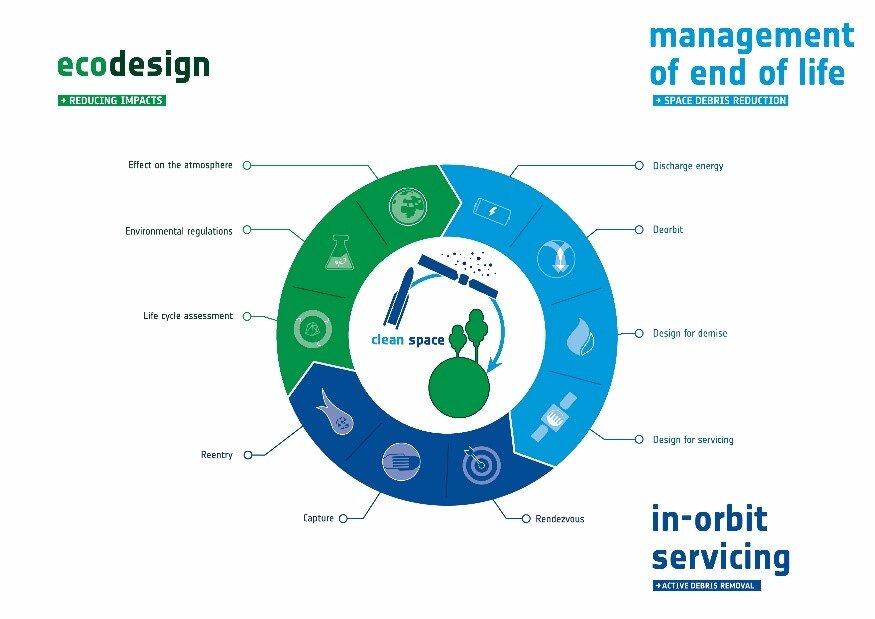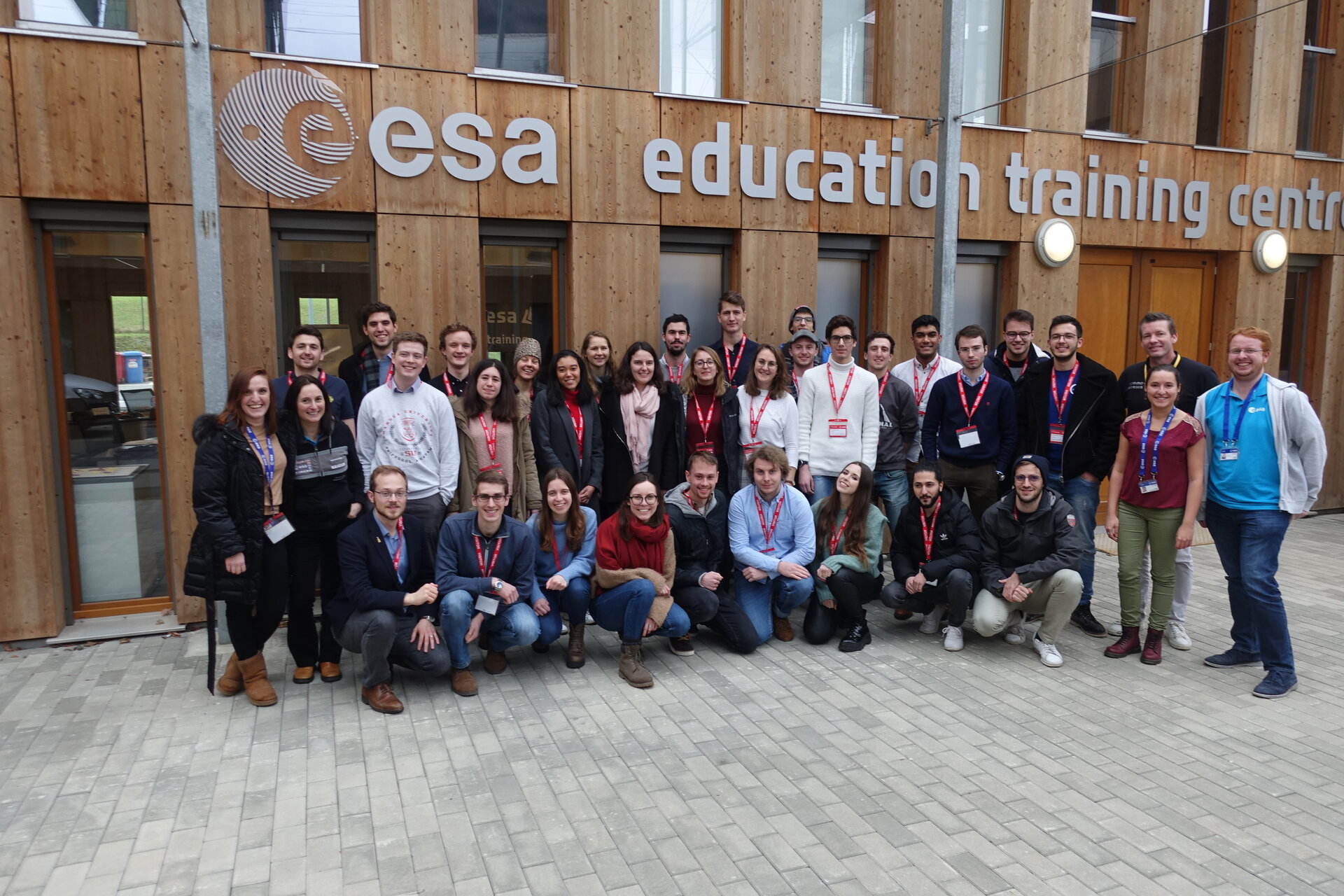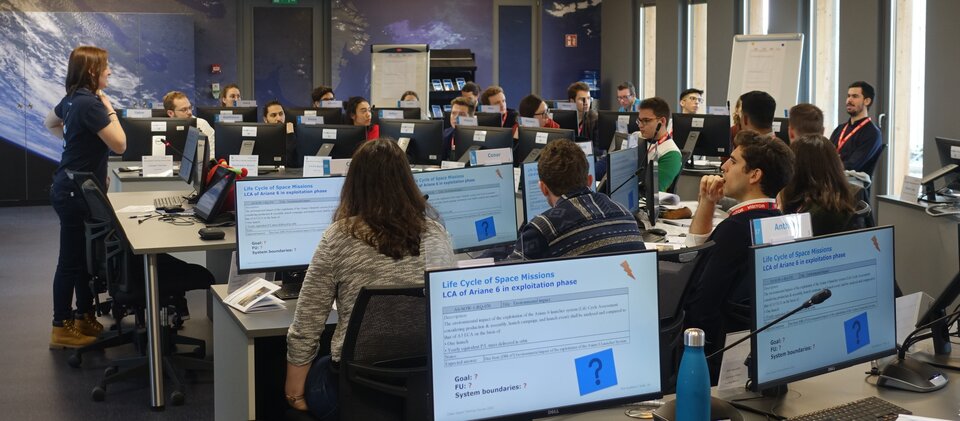Applications now open for the first Online edition of ESA Academy’s Clean Space Training Course
After the success of the pilot edition in 2020, ESA Academy is looking for 30 highly motivated engineering Master and PhD students with a foundation knowledge of Space Systems Engineering to attend the second edition of the Clean Space Training Course, to be held online over 5 full days between 3 and 7 May 2021. This is an outstanding opportunity for students to complement their engineering studies with insight into a vital aspect of future space missions, providing a springboard to become the next generation of leading space engineers.

The space industry has been key in taking environmental research forward by allowing different perspectives on our fragile planet. This has helped to push the environmental crisis to the forefront of public and political awareness. However, more needs to be done to ensure that space missions themselves have lower impacts on the environment, both on Earth and in space. ESA’s Clean Space initiative was set up in 2012 to gain a better understanding of the environmental effects of the entire life cycle of space missions and to investigate more sustainable alternatives. Clean Space’s activities fall into three main areas:
- EcoDesign: addressing environmental impacts and fostering green technologies;
- End-of-life Management: minimising the production of space debris;
- In-Orbit Servicing/Debris Removal: removing derelict spacecraft from orbit and demonstrating in-orbit servicing.

ESA wants to equip our future space engineers with the knowledge and skills required to tackle these issues. Devised in collaboration between ESA Education Office and the Clean Space Initiative, the Clean Space Training Course will offer students valuable insight into approaches to consider and reduce the environmental impact across the entire life cycle of a space mission. Lectures will focus on how to design a satellite that will not generate debris; will remove defunct satellites and debris already in orbit; and will be environmentally friendly. Students will even undertake group projects to learn how to design a “clean” satellite.
Preliminary schedule:
| Day 1: |
Welcome and Introduction Clean Space Overview Life Cycle Assessment & EcoDesign Group Project 1: Baseline mission and Environmental impacts assessment |
| Day 2: |
Space Debris Mitigation Requirements & Implication in the Spacecraft Design Re-entry Strategies Passivation: Propulsion & Power Group Project 2: Comply with Space Debris Mitigation requirements, Part 1 Legal Aspects |
| Day 3: |
Design for Demise: why and how? Group Project 2: Comply with Space Debris Mitigation requirements, Part 2 On-Orbit Servicing Close Proximity Operations ESA & ESA Education Programme |
| Day 4: |
Active Debris Removal Overview Group Project 3: Remove your satellite from orbit Guidance, Navigation and Control for Capturing Robotics for Capturing |
| Day5: |
Design for Removal Final Group Project: Clean the mega constellations! Final Group Presentations |
More information
Who can apply?
In order to participate, students must fulfil the following criteria at the time of application:
- aged minimum 18 years old. ESA Academy and relevant partners will only appraise applications from students who have no or limited professional experience in relevant engineering or space-related topics;
- be a citizen of an ESA Member State, Canada, Latvia or Slovenia;
- be enrolled as a MSc (BSc completed) or PhD student in a university (not graduating before the training course);
- be studying for an engineering degree;
- have a basic knowledge of space system design.
Selected students will be requested to attend the entire 5 days long training course live.
Upon completion of the training course, the students will be evaluated on the basis of the Group Project work. In case of successful participation, the students will receive a certificate of participation and a course transcript, allowing them to request ECTS credit(s) from their respective universities.
How to apply:
- Fill in the application form;
- Upload a motivation letter (PDF, maximum 1 page, no images);
- Upload a CV (Europass format, PDF, maximum 2 pages);
- Upload a formal recommendation letter (PDF, maximum 1 page, including signature, no images) from a university professor or academic supervisor of current university; (if not possible due to the current COVID-19 situation in your country, please ask a university professor or an academic advisor to send a recommendation email to tlp@esa.int);
- Upload a copy of academic records (PDF);All answers and documents should be in English (except academic records if not available).
The deadline for applications is 8 March 2021.
For more information, please contact tlp@esa.int



